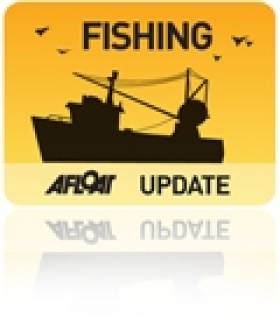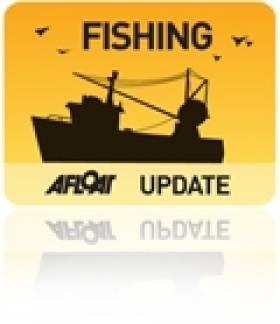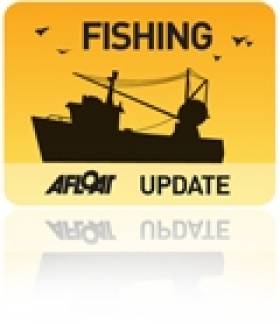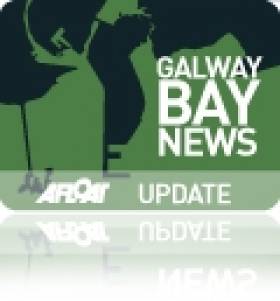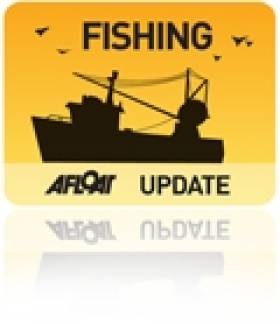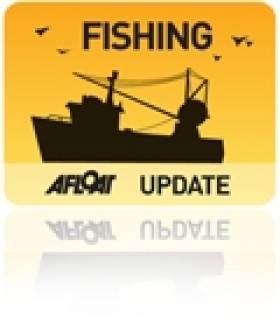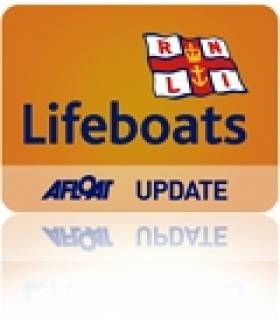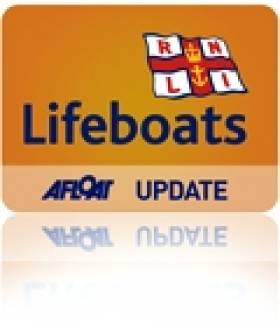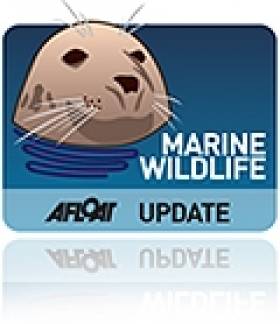Displaying items by tag: Fishing
#Fishing - Marine Minister Simon Coveney will present a revised comprehensive compromise Irish EU presidency text to the EU Council of Fisheries Ministers on Monday 13 May seeking a new mandate to re-enter final negotiations with the European Parliament on a reformed Common Fisheries Policy (CFP).
Minister Coveney said that these decisive negotiations for agreeing a comprehensive reform of the CFP in Brussels on 13-14 May are likely to be very difficult given the significance for the next decade of what may be decided at the meeting.
“An enormous amount of work has gone into progressing the reform with council, commission and parliament during the Irish presidency," he said. "We now have an Irish presidency substantially revised set of compromise proposals which I believe give us a sound basis for positive engagement at council.
"Agreement at council on this presidency compromise package would support an ambitious reformed CFP which would secure a better future for our fish stocks and for the fishermen and coastal communities who depend on them."
The minister emphasised that there is a "very short window of opportunity for council and parliament to agree and deliver an effective reform of our fisheries policy and the Irish presidency is doing all it can to bring the institutions together to take this historic opportunity.
"I believe that if all parties focus on the critical elements of a reformed CFP, we can by working together reach realistic and substantial agreement through the co-decision process during the Irish presidency.”
Formal negotiations with the European Parliament have resulted in the Irish presidency drawing up a revised compromise 200-page legal text, which Minister Coveney, as president of the council, will use as the basis of negotiations with EU fisheries ministers.
The objective is to get political agreement on a final compromise package to enable conclusion of negotiations with the parliament and the commission on CFP reform during the Irish presidency, which concludes at the end of June.
Minister Coveney will also update EU ministerial colleagues on progress made to date by the Irish presidency during the ‘trilogue’ process where EU presidency (council), commission and parliament have been engaged in complex discussions on refining proposals for CFP reform.
€1billion of Fish Annually Taken from Irish National Waters – Fishing for Justice Website
A website launched by West Cork fishermen says now is the time to reform the Common Fisheries Policy because 'Ireland continues to gift the EU with €1billion of fish annually from Irish national waters'.
The website is supported with significant statistics showing Ireland's low rights compared with European neighbours.
Ireland, a peripheral island with some of the richest fishing waters in the E.U. and a three thousand mile coastline, get a mere 4% of the valuable demersal (bottom feeding fish) quotas. This is meant to serve over 2,000 vessels while, as the website says 'our so called partners take over one billion Euro per annum from what we call our water'.
More on http://fishingforjustice.eu
Connemara Oyster Grounds To Lose Disease-Free Status
#Fishing - The Marine Institute is encouraging the agreement of a new code of practice for oyster fishing at Ballinakill Bay in Co Galway, which is set to lose its disease-free status.
Galway Bay FM reports that a single oyster out of 900 tested at the bay, near Letterfrack on the north-west coast of Connemara, tested positive for the Ostreid herpes virus two years ago as part of an EU-supported programme.
Though accounting for just 0.11% of the entire sample, the positive test is enough to strip the area of its clean status.
Senator Trevor O'Clochartaigh raised the issue in the Seanad last week, which prompted the Department of the Marine to confirm that the Marine Institute recommends a code of practice that would see the area's status eventually reinstated.
Galway Port Expansion '99 Per Cent Ready To Go'
#GalwayHarbour - Plans for the expansion of Galway Harbour are "99 per cent ready to go", as the Galway Independent reports.
Eamon Bradshaw, CEO of the Galway Harbour Company, said that the application for the new development would be submitted by the end of June.
As previously reported on Afloat.ie, the scheme will be the first Irish project lodged under new legislation that provides for planning permission on the grounds of "overriding public interest".
Bradshaw says that the necessary Natura Impact Statement has been completed, and economic and financial details were now being finalised for the redevelopment project at the harbour, recently recognised by the Government as a 'port of regional significance'.
Should it get the go-ahead from An Bord Pleanála, the new harbour will extend almost 1km out to sea with 660m of quay berth and plenty of space for cargo and container ships, oil tankers, fishing vessels and passenger ships.
The project will be completed in four phases, with the first €50 million phase extending the port by some 57 acres to accommodate a greater number of commercial ships and modern cruise liners.
Galway City Council recently granted extra time to the Galway Harbour Company for pre-expansion demolition works in the docks area.
The Galway Independent has much more on the story HERE.
The skipper of a Belgium registered beam trawler has today been ordered to pay a total of £2,345 in fines and costs after pleading guilty to offences under the International Regulations for Preventing Collisions at Sea (Colregs).
Jeffry Demeester, the skipper of FV Deborah, appeared at West Hampshire Magistrates Court this morning.
During the early hours of 18 January 2012, the Hong Kong registered tanker Sea Transport was in the Bristol Channel waiting for orders to enter Milford Haven. The tanker was fully loaded, with an estimated 90,000 tonnes of crude oil on board. Weather conditions at the time were poor with driving rain.
The FV Deborah was outward bound from Milford Haven heading towards Belgium. The skipper was alone on the bridge. He did notice the ship on AIS and radar but made an incorrect assessment that he would miss the ship. He did not realise that the FV Deborah was on a collision course with the Sea Transport.
Shortly after 1am on 18 January and approximately 14 miles from the entrance to Milford Haven, the bow of the trawler ran into the port quarter of the tanker making a deep gash above the waterline on the side of the ship causing extensive damage. Nobody was injured and there was no reported pollution.
In sentencing, the Court took into consideration his previous good character and full cooperation with the Maritime and Coastguard Agency in this matter as well as his early plea of guilty to the charges.
Robert Cotter, Surveyor in Charge at the MCA's Cardiff Marine Office said:
"The rules state that every vessel shall at all times maintain a proper look-out by sight and hearing as well as by all available means appropriate in the prevailing circumstances and conditions so as to make a full appraisal of the situation and of the risk of collision. This incident is a direct result of that rule not being adhered to".
New Marine Web Facility for Fishing Sector
Jim Higgins MEP has welcomed the launch of a comprehensive European web resource that will provide up-to-date price and market information on all fishery and aquaculture products for the benefit of the entire maritime sector.
"By coordinating all the market statistics in Europe, the European Commission website is providing a reliable overview with specifics based on individual interest. It will give producers a much clearer picture of the fisheries market and hopefully will enable them to seek out new market opportunities and improve production in accordance with market demands," Mr Higgins said in Brussels today.
"The European Market Observatory for Fishery and Aquaculture Products (EUMOFA) is an EU-wide interactive web-tool that will provide the latest volume, value and price of fisheries and aquaculture products throughout the supply chain, from when they land to port to when they are displayed on supermarket shelves.
"The Observatory will be updated every day with production with information including data on imports, exports and consumption trends. It is multilingual, user friendly and free of charge," Mr Higgins added.
Users will be able to search by catch, farm, import or specific areas. For example, with three clicks you can get the cod prices in early April over 14 market places in 7 European countries. Users can also research the wholesale prices for types of fish across several European countries or the retail prices in chosen countries. They can then save the parameters of any search to obtain customised and updated weekly or monthly reports.
The website is accessible here: http://ec.europa.eu/fisheries/market-observatory
Aran Islands RNLI Rescue Fishermen in Galway Bay
#RNLI - Aran Islands RNLI in Galway Bay assisted six fishermen from a 24m trawler yesterday Thursday 18 April.
The volunteer lifeboat crew launched their all-weather lifeboat at 4.20pm following a report that a fishing vessel, the Archangel, with six crew on board had got into difficulty and broken down one mile north west of Inishmore.
There was a six-metre swell at the time with a force seven to eight wind.
The lifeboat crew under coxswain John O’Donnell arrived on scene accompanied in the air by Irish Coast Guard helicopter Rescue 115 - the subject of its own documentary TV series currently showing on RTÉ One - and established a tow line removing the vessel from any immediate danger.
The trawler was then towed back to Rossaveal in Connemara.
Speaking following the call-out, Aran Islands RNLI lifeboat operations manager Michael Hernon said: "Thanks to the speed and efficiency of the crew in launching the lifeboat, we were able to arrive on scene in good time to assist the fishermen and successfully tow the trawler safely to shore."
RNLI Crews Assist Windsurfer, Stricken Fishing Boat in Co Down
#RNLI - Portaferry RNLI rescued a windsurfer who got into difficulty off the Co Down coast yesterday (16 April).
The volunteer crew launched their inshore lifeboat before 5pm yesterday evening to go the aid of the injured windsurfer reported to be in the area of Pig Island, a small island in Strangford Lough close to Newtownards Sailing Club.
The weather at the time was described as blowing slight to moderate winds with good visibility.
The crew was on scene at 5.15pm where they found the man on Pig Island accompanied by two other men. The windsurfer, who was suffering from a shoulder injury, was transferred to the lifeboat and made comfortable before being taken to the sailing club, where he was then transferred into the care of the coastguard and passed to the ambulance service to be taken to hospital.
Speaking after the rescue, Portaferry RNLI lifeboat operations manager Brian Bailie said: "As the charity that saves lives at sea, we will always respond to any call for help where someone is in danger.
"Strangford Lough is a popular destination for a wide range of water sport enthusiasts and it is important that they take all necessary precautions when using the lough.
"As we are all aware, accidents can and do happen and it is at such times that the work carried out by the volunteer crews of the RNLI is so important."
Elsewhere in Co Down yesterday, Bangor and Donaghadee RNLI assisted a fisherman whose 28ft commercial fishing boat experienced engine failure.
The crew quickly located the disabled boat one mile west of the Copeland Islands at the mouth of Belfast Lough yesterday morning after 11.15am.
With the vessel drifting closer to the island shores and the wind gusting gale force eight, a tow line was quickly rigged and passed to the fishing boat. Bangor RNLI was escorted by Donaghadee RNLI's all-weather lifeboat as it towed the fishing vessel to the safety of Bangor Harbour.
Bangor RNLI volunteer helm Peter Scott, who was involved in this rescue, said: "Engine failure close to shore could lead to a life threatening situation. We always urge everyone going to sea to make sure their electrical systems and engine are well maintained and in good working order. A good anchor and chain should always be carried as part of essential safety equipment.
"We are glad the skipper of this vessel is now safely ashore," he added.
Groups Urge Fisheries Ministers For Action On CFP
#CFPreform - RTÉ News reports that up to 200 conservation groups in Ireland and abroad have written to Marine Minister Simon Coveney and his EU counterparts urging his support for an end to overfishing in European waters by 2015.
The groups claim that mismanagement of EU fisheries under the Common Fisheries Policy has resulted in significant overfishing, particularly in the Mediterranean where as much as 80% of fish stocks are fished far beyond sustainable levels.
As previously reported on Afloat.ie, Minister Coveney - who is President of the European Council of Fisheries Ministers - welcomed a vote in February on a reform agenda for the CFP, which has been prioritised for delivery by the Irish EU presidency before the six-month term concludes at the end of June.
#MarineWildlife - UK environmentalists have expressed their disappointment at the British government's slow progress on developing its promised network of Marine Conservation Zones (MCZs), as the Belfast Telegraph reports.
The consultation period was for the proposals was set to end on Sunday 31 March - amid fears among conservation groups that were realised some months ago with the news that just 31 out of a potential 127 sites would be designated as protected for marine wildlife and plantlife by the end of this year.
It's being reported that Environment Minister Richard Beynon is blaming budget cuts and the high cost of scientific assessment for the slowdown in progress on the government's side.
"I want to do as many zones as we can for as little as we can," he told the BBC. "People have waited many years for this; we will designate the first tranche in September and will announce the next lot for consultation then."
The Royal Yachting Association (RYA) said in December that it was "encouraged" by the British government's "sensible" phased approach to the MCZ plans.
However, conservationists like Jolyon Chesworth from the Wildlife Trusts argue that their interests are being asked "to compromise on a compromise".
Chesworth added that the original 127 zones "were only nominated after very long discussions with anglers, sailors and the fishing industry".
The Belfast Telegraph has more on the story HERE.


























